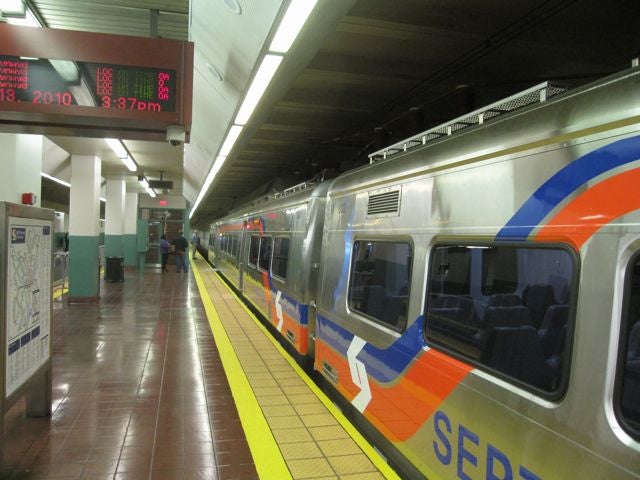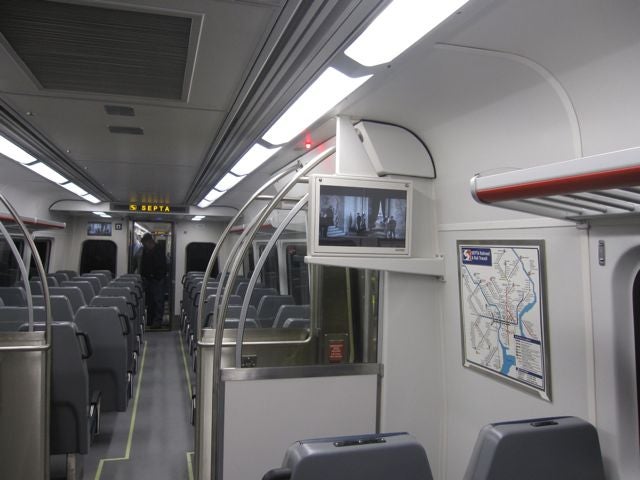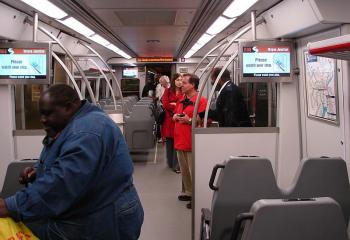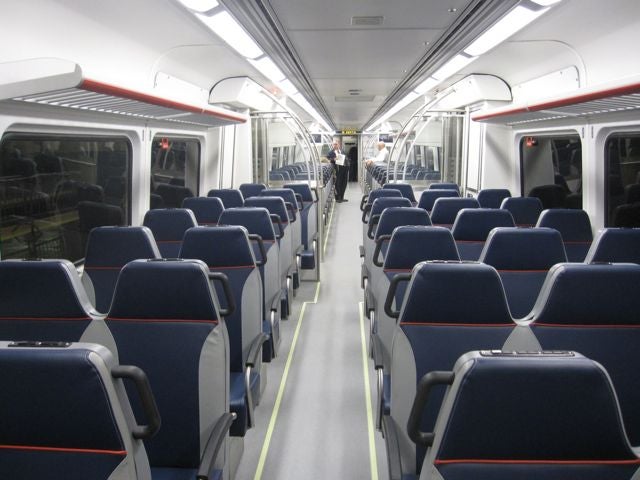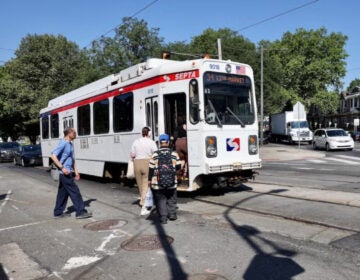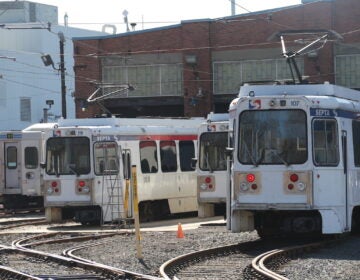New SEPTA railcars still rolling into problems
SEPTA hopes to finally have the first of its new Silverliner V railcars serving riders by the end of the month.
But as it gets ready for that big day, the authority continues to contend with problems at the Weccacoe plant in South Philadelphia, where the new cars are being assembled, according to a SEPTA report that details progress on the cars in September.
The report cites issues with workmanship and with training the labor force to assemble the cars.
It points to “issues associated with the quality of wiring and cable installations” that are impacting testing of the new rail cars and to unspecified “functional problems” in the three pilot cars that are currently undergoing simulated revenue-service testing on SEPTA- and Amtrak-owned tracks.
The testing of the cars’ heating and cooling systems will require “some modifications” to the Silverliner Vs. Those modifications are being evaluated by United Transit Systems, the consortium building the cars for SEPTA.
The report also pointed to problems on the Weccacoe production line, noting that “production, and especially quality processes, need improvement” and the report cites “a combination of material delays and labor qualifications” for the slow production pace at the facility.
To resolve the latter issue, the consortium has hired “many new local workers” and dispatched workers from its South Korean plant to assist and train them.
This report comes after an earlier one, obtained by The Philadelphia Inquirer, noted additional problems in production and seems to indicate continuing problems ― especially because it said UTS had made only “moderate progress” in addressing “material control issues on the production line” and notes the consortium is still working on establishing a standardized process for assembling the cars.
Material control is the process of buying, storing and staging production materials to minimize cost and maximize efficiency during this testing and assembly.
The authority has purchased 120 Silverliner Vs for $274 million to replace 73 older Silverliner II and III cars, some of which date back to the 1960s. Rail advocates worry that SEPTA’s decision to sell off the older cars for scrap could put it in a bind if the Silverliner Vs have any manufacturing problems.They point to brake problems that the Acela Express cars have experienced, which forced Amtrak to take them out of service in 2002 and 2005, and the fact that SEPTA has gone such a long time without designing and procuring a new class of rail cars.
In some good news, September’s report notes significant progress on addressing problems with the communications system that the Inquirer article noted.
UTS has also successfully removed rust from the carshells that was cited in the article and reports successful simulated revenue-service runs by the pilot cars.
SEPTA spokesman Andrew Busch declined to provide more information on the concerns outlined in the report, although he said that “we’re definitely making progress in all the areas that were listed” and that SEPTA is “happy with that progress.”
“We feel confident that we’ve examined all those issues,” he added, noting that the problems haven’t delayed plans to start bringing the rail cars into service at the end of the month.
As of September, 69 of the 120 Silverliner carshells had been delivered to the South Philadelphia plant, with another 10 being stored off-site and 17 more scheduled to arrive in Philadelphia in early October. About 40 of the 69 carshells were being outfitted and six cars were undergoing static testing.
Two additional pilot cars were undergoing simulated revenue-service testing, and one pilot car was undergoing climate-control testing in Canada.
Once completed, the cars will replace SEPTA’s aging Silverliner II and III fleet and provide extra capacity on regional rail for expected ridership gains.
The last car is now scheduled to roll off the assembly line in August, eight months behind schedule.
WHYY is your source for fact-based, in-depth journalism and information. As a nonprofit organization, we rely on financial support from readers like you. Please give today.



